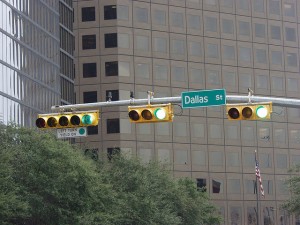 On the surface, one would think that traffic cameras at intersections are a useful tool to the police force to clock people’s speeds, or maybe even check to see who runs a red light. Additionally, these cameras can ensure that the cops can better spend their time serving the community in other ways. However, drivers in towns that use traffic cameras as a primary method of law enforcement should try to avoid this type of complacency.
On the surface, one would think that traffic cameras at intersections are a useful tool to the police force to clock people’s speeds, or maybe even check to see who runs a red light. Additionally, these cameras can ensure that the cops can better spend their time serving the community in other ways. However, drivers in towns that use traffic cameras as a primary method of law enforcement should try to avoid this type of complacency.
Not only are privacy advocates continually frustrated by the invasive nature of this kind of constant surveillance, but there are a number of inherent flaws in traffic cameras that lead to these cameras sometimes causing more harm than good.
Issues In The Machinery
The usefulness of traffic cameras at busy intersections demands that all the machinery involved, including both the camera and the light itself, is working properly. However, there have been a number of cases where an issue with the traffic light itself led to a high volume of illegitimate red-light tickets.
- In a recent case, a Coral Springs traffic light was found to be changing from yellow to red more quickly than state guidelines allowed.
- As a result, hundreds of traffic tickets that were issued were either voided or refunded later on.
This case illustrates a fundamental weakness in traffic camera infrastructure: as the camera does not make a distinction between a long and short light, it will send out tickets regardless of whether or not they should actually have been issued.
Wrong Vehicle(s) Getting Ticketed
Though traffic cameras ostensibly are able to send tickets to those who caused a particular violation, the imprecise nature of these devices means that the correct driver is not always held responsible. For example;
- Motorists have complained that after a car sped through a red light, the traffic camera captured the license plate of a car parked across the street instead of the offending driver themselves.
- Thus, a motorist who was not even driving at the time of the ticket finds themselves slapped with a high fine (which, given the nature of traffic cameras, might be sent multiple weeks after the event actually occurred).
This inefficiency in traffic cameras can lead to false tickets being issued and a lot of investment in terms of time and energy from those who must fight tickets.
State-by-State Issues
One of the more curious weaknesses of traffic cameras is their inability to determine state plates, thus sending tickets to individuals who live hundreds of miles away.
- There is a bevy of anecdotal evidence of drivers who received a ticket from a city that they have not visited in years, as a driver with their same license plate ran a red light there.
- Because traffic cameras generate tickets automatically based on plate information, these kinds of mistakes are surprisingly common.
- The motorist then finds themselves in the unenviable position of having to fight a ticket that was issued in a city on the other side of the country.
Drivers should be aware that the tickets they receive could very well have been generated by one of these plate errors.
While privacy debates will always rage surrounding the relative pros and cons of traffic cameras, drivers must be aware of their practical weaknesses. Though traffic cameras are described as more efficient than individual officers, they are unable to make the kinds of essential judgment calls that a seasoned traffic officer would be able to make in an instant. Thus, drivers who have received a traffic ticket may find themselves compelled to challenge the traffic tickets they receive rather than pay them instantly, hoping to find additional inefficiencies in the system to invalidate the ticket.
[Image:https://www.flickr.com/photos/telemax/2788591239]
Scott Desind
Latest posts by Scott Desind (see all)
- How to Request the County Seat and Fight Your California Traffic Ticket - May 21, 2023
- Don’t Even Touch That Cell Phone - July 13, 2022
- Innocent Until Proven Guilty - March 2, 2020

